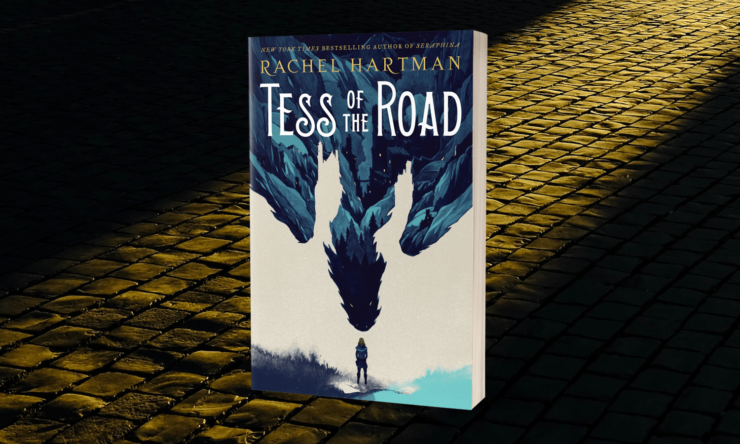In the lead-up to the 2019 Hugo Awards, we’re taking time to appreciate this year’s novel and short fiction Finalists, and what makes each of them great.
We know the language for the novels that shape us when we’re young: formative, inspirational, the books that made us who we are—the ones that show us who we can grow into, and ways of becoming those people. But it’s less common to talk about the books that serve this same purpose once we’re grown-ups—even though we keep becoming who we are. It’s not a finite process!
But to talk in that same heartfelt way when you’re an adult can be about recognition as much as—if not more than—inspiration. It can be the way a prickly character tells you that it’s okay to be prickly, or the way a young woman who’s internalized the shitty messages of her culture reminds you that most of us have done that, and we can still get over it.
To speak of recognition, though, is to acknowledge that we’re worth recognizing. We have to own who we are, and that our stories are also worth telling, in order to speak about the books that fit into our adult selves like perfect building blocks. It feels arrogant, possessive, like something you shouldn’t say in public. But that’s how I feel about the stunning, deserving-of-all-the-awards Tess of the Road—and it’s a feeling this book encourages. In every conflict, every moment when Tess flails and stumbles and picks herself back up again, there’s familiarity, acceptance, and the understanding that comes of learning from mistakes. Tess is flawed, hurting, angry, occasionally dunderheaded and/or kind of a dick. I didn’t meet many young women like her when I was a young woman reading stories about going out and finding your place in the world. But better late than never.
Tess isn’t nice. Tess is a reminder that you don’t have to be nice for your story to be valid. Tess makes the same mistake we all (or at least I) make sometimes: She thinks she knows, for better or worse, a world that is gloriously unknowable in its depth and breadth and width. She thinks she doesn’t fit, because she’s been told there are only a few ways to fit. What she finds, in Hartman’s graceful, empathetic, generous and careful unraveling of the knots in her story, is that there are as many ways to live in the huge wide world as there are people in it.
Tess is about perspective, and grief, and rape culture, and how to live when you feel like the world doesn’t know what to do with you. The book’s cover is perfect. It shows what it feels like to be a young woman venturing out into a world full of monsters: You’re small, and the beasts are so large, but you don’t know yet if they’re going to eat you alive or tell you secrets. Or maybe both.
Maybe it’s both more often than stories like to admit.
Molly Templeton has been a bookseller, an alt-weekly editor, and assistant managing editor of Tor.com, among other things. She now lives and writes in Oregon, and spends as much time as possible in the woods. You can also find her on Twitter.










